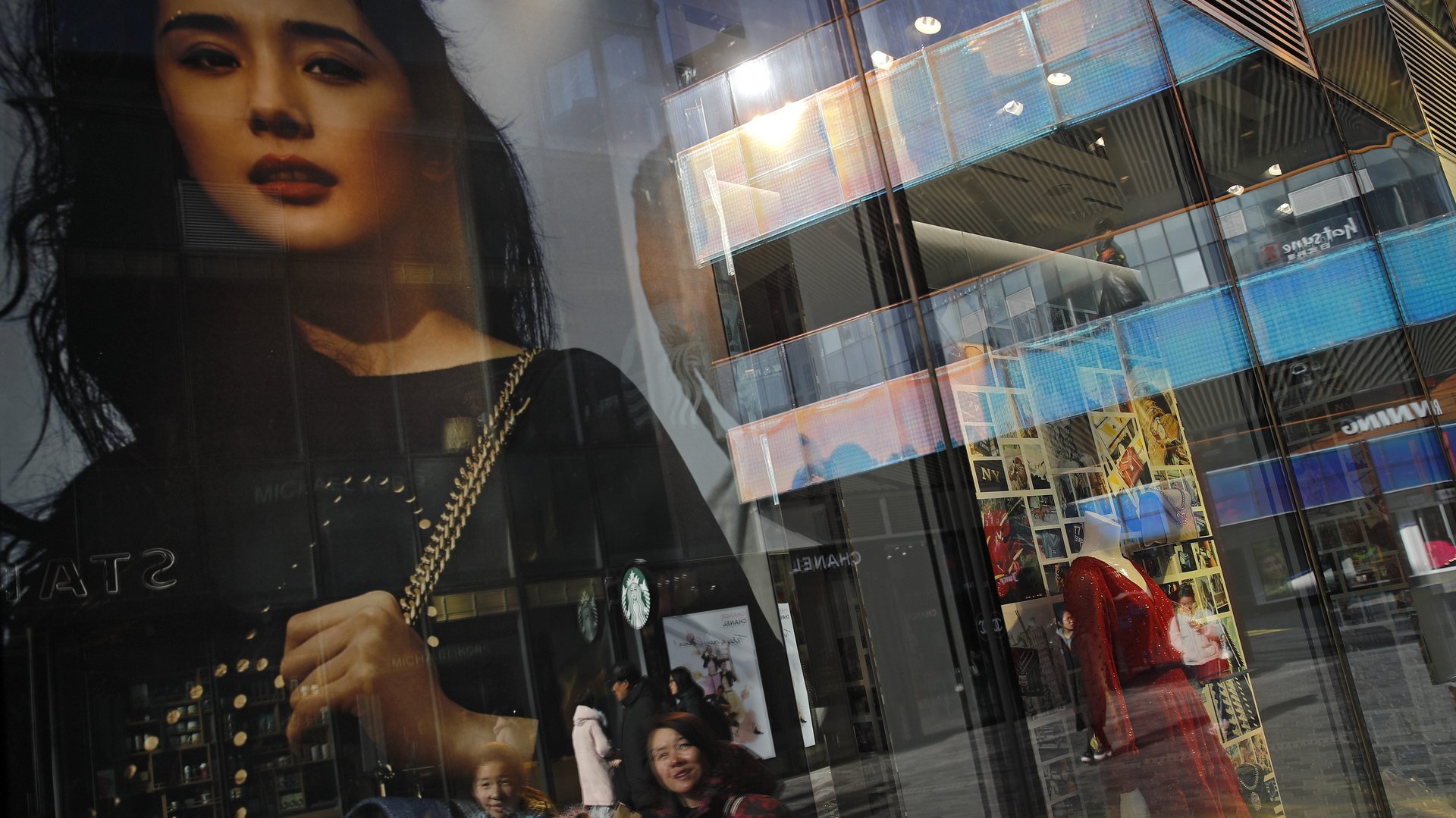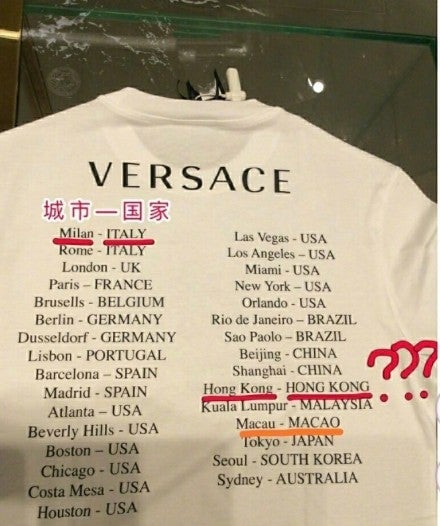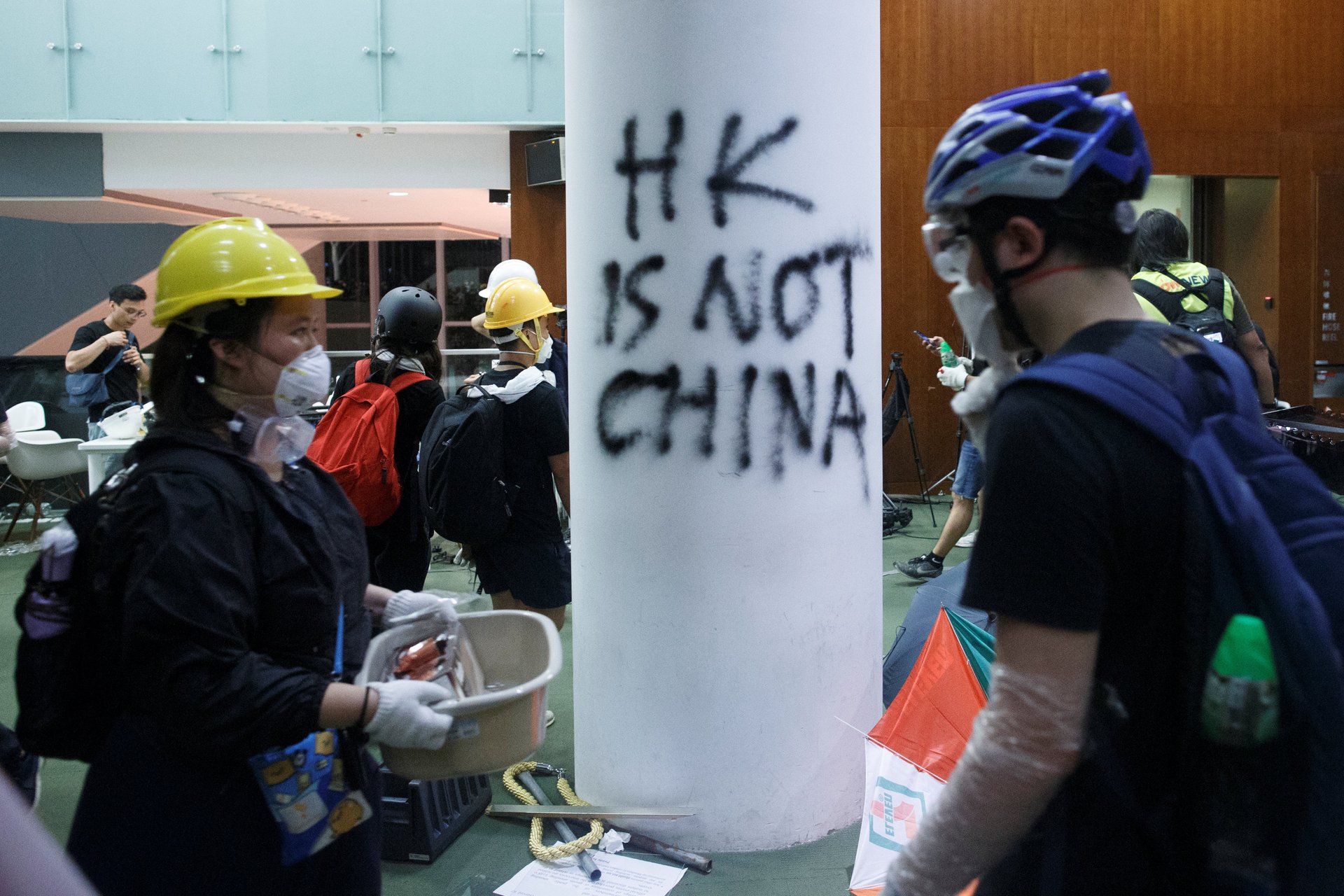Why fashion brands are rushing to apologize in China
It’s a trend. After Versace offered its “deepest apologies” to China over the weekend for apparently disrespecting its sovereignty, Coach and Givenchy have followed suit.


It’s a trend. After Versace offered its “deepest apologies” to China over the weekend for apparently disrespecting its sovereignty, Coach and Givenchy have followed suit.
The remorse is specifically over t-shirts with designs suggesting regions including Hong Kong, Macau, and Taiwan are independent territories, rather than part of China.
It’s not the only way brands have stumbled into this politically sensitive realm. Calvin Klein and sports label Asics have also now issued statements of remorse on Chinese social media, for treating the regions as independent in drop-down menus.

The brands are now trying to assuage China’s shoppers and its government, issuing statements about how contrite they are on Weibo and Instagram, proclaiming their respect for China’s territorial sovereignty, and fixing the problems to the best of their ability.
What prompted this sudden rash of apologies? In a short, a mix of politics and money.
China vs. misbehaving brands
Some of the blunders are technically months and years old. Coach said in its statement that it first moved to address the problems with its t-shirt in May 2018. Givenchy told Business of Fashion (paywall) that its shirt was part of a 2017 collection and reappeared now because retailers were selling old stock.
They’ve resurfaced at a particularly delicate moment, though, as China’s government appears to be working overtime to shape opinion overseas as well as domestically.
Hong Kong is in the midst of widespread protests originally sparked by a proposed bill (now shelved) that would have allowed the city to extradite suspected criminals to mainland China. Many Hong Kong residents felt it threatened the measure of autonomy the city retains. Since it returned to Chinese control in 1997, the onetime British colony has had its own economic and legal systems, as well as greater civil liberties than the mainland. As the protests have continued to escalate, China has begun to crack down even harder, and its propaganda machine has sought to portray some of the protesters as challenging national sovereignty.

Macau and Taiwan aren’t a part of the protests, but suggestions that they don’t belong to China are extra-sensitive for China’s government at the moment. Macau, like Hong Kong, is a “special administrative region” with more autonomy than other parts of China. Meanwhile, Beijing considers self-governed Taiwan to be a renegade province.
Though brands have made similar missteps before, the backlash has been unusually fierce in recent days. Most of it has appeared on Chinese social media, and been amplified by Chinese celebrities ending their relationships with brands. Yang Mi, a superstar actress in China, announced she was cutting ties with Versace. Top model Liu Wen said on Weibo that she was severing her contract with Coach, as did actress Guan Xiaotong. Jackson Yee, a popular singer, said he would cease working with Givenchy’s cosmetics line.
“I love my motherland, and I steadfastly safeguard China’s sovereignty,” Liu Wen said on Weibo, according to Reuters.
The cost of lost access
For the fashion brands caught up, there’s a lot at stake. Greater China is on pace to overtake the US as the largest fashion market in the world this year, according to a joint report by McKinsey & Company and Business of Fashion.
The market is especially important for upscale brands such as Versace, Givenchy, and Coach. Chinese nationals, shopping at home and abroad, are already the world’s top buyers of luxury goods. Spending on luxury is still growing far faster than it is in mature markets such as the US and Europe. The country is a key component of many brands’ plans for sales growth.
As Quartz’s Nikhil Sonnad reported after Versace’s apology, “Usually the Chinese government forces these companies to issue such apologies, threatening to cut off access to the Chinese market if they refuse.” At the same time, brands also can’t afford to lose the support of Chinese celebrities, who have become a critical way that brands connect with audiences online.
“Being shunned by Chinese celebrities is a kiss of death for a brand’s social media presence in China,” Liz Flora, editor for Asia-Pacific research at the digital intelligence firm L2 previously told Quartz. “If a luxury brand can’t get celebrities to work with it in the market, it’s almost like it doesn’t exist.”
If brands don’t react quickly and accordingly, they risk losing access to one of the most valuable customer bases in the world, which is why labels such as Versace, Givenchy, and Coach have displayed a level of remorse you might not expect over ill-considered t-shirt designs.
“The house of Givenchy firmly respects China’s national sovereignty and territorial integrity,” Givenchy said. “The House of Givenchy wishes to sincerely apologize for this mistake that does not reflect the deep respect it has for its Chinese audiences throughout the world.”
“Coach respects and supports China’s sovereignty and territorial integrity,” Coach said. “We are fully aware of the severity of this error and deeply regret it.”